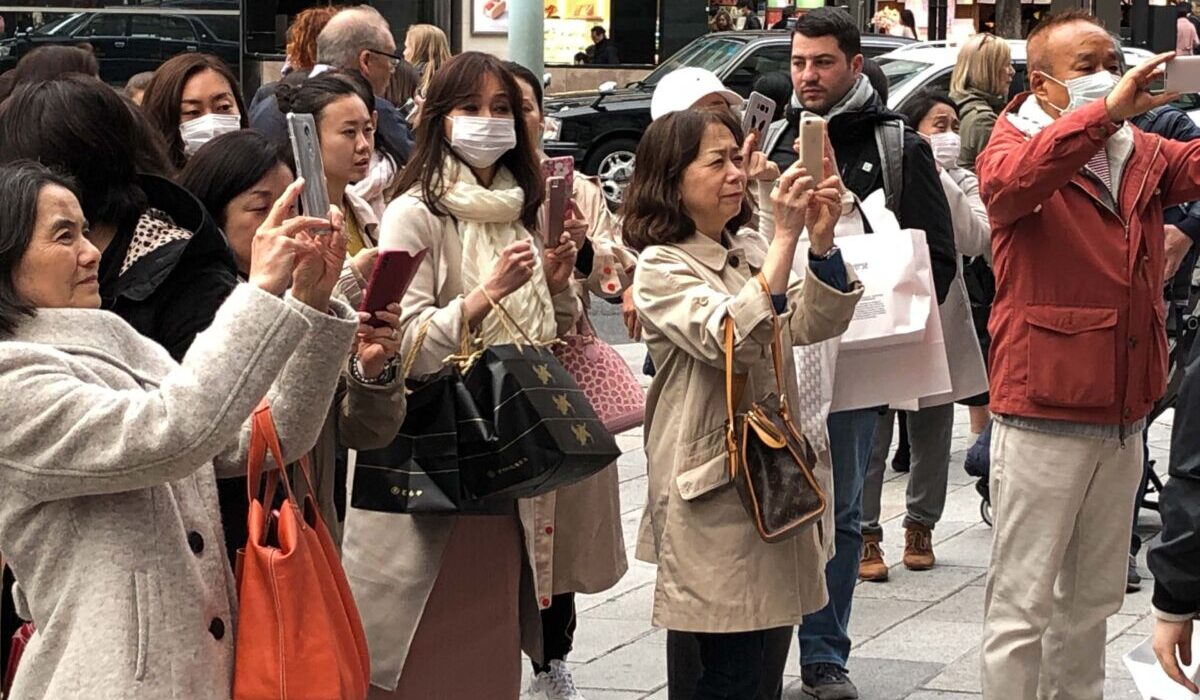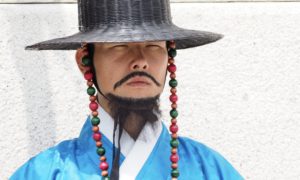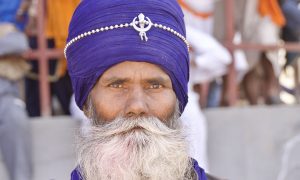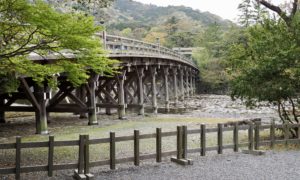Writing a travel blog during a pandemic is a pretty interesting challenge.
I put my suitcase way the end of Feb. 2020 after a glorious trip to Oman and haven’t gone anywhere since. This means if I am going to keep posting every Monday I gotta get creative. Reaching back into the memory bank of trips to find material is one way to do that. Today’s blog post is one of those.
It’s about Reiwa.
My first experience with Reiwa occurred when we crossed a major street in Tokyo two years ago to see writing on the window of the department store. Lots of people had gathered around cameras in hand in a very orderly Japanese way.
The word Reiwa written in Japanese had drawn a large crowd.
I was pretty curious about this and soon learned that whenever a new emperor in Japan comes into power, a phrase is written to describe his reign. It’s called a “gengo” which is used alongside the western calendar to count years.
The gengo calendar is defined by the number of years the current emperor has been in reign.
Apparently there was great anticipation because the new name is a closely guarded secret until it’s official unveiling. Reiwa translates roughly to “good fortune” or “peace” or “harmony.
Traditionally, every Japanese emperor is assigned a gengo, or era name, which is used to identify years on the Japanese calendar and serves as an official name used on state documents like drivers’ licenses and currency.
There’s nothing casual about it. The tradition has been going on for 1300 years.
The new name is created with the intention of providing the residents of Japan with a sense of moral direction or a standard to aim for in every day life, business and government.
During the time I was in Japan, the 85 year old Emperor Akihito had abdicated in favor of his son, Crown Prince Naruhito. Emperor Akihito’s era was called Heisei 31. It means “achieving peace.”
The closest I can can compare is likeTrump’s Make America Great Again or President Johnson’s Great Society or even the posthumous designation of the Kennedy years as Camelot. The emperor’s don’t get to pick their gengo.
This is tradition and history and a big deal. The new name is expected to embody Japanese ideals and aspirations, while also being easy to read and write.
The words: Reiwa will appear on coins, newspapers, driving licenses and official paperwork as a way of marking time.
It also represents the spirit of the period. Just as “the Victorian era” conjures up culture and events, the era name will also.
What does it mean to the Japanese people? I’m not really sure, but I found this comment written by BY KUNI MIYAKE of the Japanese Times which might help.
Miyake writes, “What do we want in Reiwa? Many people here in Tokyo wish to rejuvenate the nation again, without aggressive or self-righteous ambitions, as part of the free and open world order and as the oldest liberal democracy in East Asia. How can we accomplish that? This is our most important mission in the new Imperial era of Reiwa.”
I do wonder if the name had been chosen during the Pandemic instead of a year before, if a different one would have been selected?
Source: Taka / PIXTA(ピクスタ











Comments
3 CommentsJoyce Cole
Feb 1, 2021We need Reiwa in the US now!
Margaret Idema
Feb 1, 2021I might consider “An adventurous spirit” for my grengo. And I also support Joyce Cole’s comment about needing this in the U.S. these days. Anyway, very interesting tradition that I didn’t know about…always love learning something new, so thank you for your blog.
Linda
Feb 2, 2021I would like to be remembered as Faithful.
Love the blog Susan